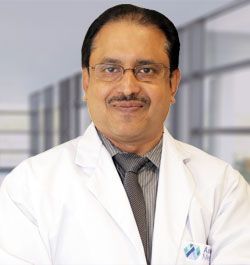
Children who were treated for a congenital heart defect when they were little may think they do not need any further follow-up with a cardiologist. But that’s not always true. Even those who were successfully treated as children may experience complications at different times throughout their life. These issues may vary in severity, depending on the defect.
Routine follow-up with a specially trained adult congenital heart cardiologist is vital to reduce the potential problems patients may encounter as they get older.
Because there are roughly 50 different categories of congenital heart defects, the problems that may occur vary greatly from one condition to another. Each patient should ask his or her physician / cardiologist what symptoms to look out for.
Adult Congenital Heart Disease Treatment
Patients with congenital heart disease can have many different symptoms. Treatment is based on the symptoms. Some examples:
For a patient whose heart beats fast, either all the time or every once in a while, treatment options may include:
1. Medicines to control the heart rate or to prevent the abnormal rhythm
2. An ablation procedure, where the electrical circuit causing the rapid heartbeat is interrupted
3. Pacemaker
4. Defibrillator
For a patient whose valve problem becomes unacceptably severe, treatment options include:
1. Valve repair
2. Valve replacement
For a patient who has had a heart infection called infective endocarditis, treatment may include:
1. Appropriate antibiotics
2. Heart surgery, if needed
For a patient with a very weak heart muscle, treatment options may include:
1. Medications
2. Treatment of the condition causing the weak heart muscle (for example, a very leaky or narrow valve)
3. A pacemaker procedure called “cardiac resynchronization”
4. Mechanical circulatory support and/or heart transplantation
Who Should Receive Genetic Screening?
Some patients may have congenital heart disease, which is related to a genetic condition. Knowing if a patient has a genetic condition is important in order to improve their healthcare treatment. It also helps patients understand the possible risks to other people in their family.
Patients with the following issues may benefit from a genetic screening:
1. Problems with growth such as short stature
2. Another type of birth defect in addition to a congenital heart defect
3. Hearing loss or major problems with vision
4. Learning disabilities or developmental delay
5. Conditions that don’t have a known cause in a patient such as a major kidney problem, a thyroid disorder, or a mental health diagnosis
6. A family history of any of these concerns or a family history of congenital heart disease

Congenital heart disease (CHD) is the most common congenital disorder in newborns. There are no published data on the occurrence of congenital heart disease in Kerala. However there is general agreement among health workers that it follows a similar pattern all over the world in different geographies. The reported prevalence of CHD at birth ranges from 6 to 13 per 1000 live births. On an average, 8 children are born with congenital heart defects for every 1000 live births in India. Variation is primarily due to the use of different methods to detect CHD (fetal echocardiography versus postnatal referral to a cardiac center). Deriving from the crude birth rate, it…
keep reading

Congenital heart disease (congenital heart defect) is an abnormality in your heart’s structure that you’re born with. Although congenital heart disease is often considered a childhood condition, advances in surgical treatment mean most babies who once died of congenital heart disease survive well into adulthood. While medical advances have improved, many adults with congenital heart disease may not be getting proper follow-up care. If you had a congenital heart defect repaired as an infant, you likely still need care as an adult. Symptoms Symptoms or signs of congenital heart disease may not show up until later in life. They may recur years after you’ve had treatment for a heart defect.…
keep reading

Minimally invasive heart surgery (also called keyhole surgery) is performed through small incisions, sometimes using specialized surgical instruments. The incision used for minimally invasive heart surgery is about 3 to 4 inches instead of the 6- to 8-inch incision required for traditional surgery. The traditional heart surgery procedure Open heart surgery is typically done through a vertical cut placed over the middle of the chest, including full division of the breastbone.While most patients tolerate this well, it can take around 12 weeks or more before the wound is completely healed. This can seriously delay a return to normal activities. These days, it is often possible to avoid such invasive options…
keep reading
about Dr sajan koshy
Pediatric Cardiac Surgeon

Dr Sajan Koshy MS MCh is currently heading the unit of Paediatric & Congenital heart surgery at Aster Medicity. Prior to joining Aster, he was working as senior consultant and head of the department of paediatric cardiac surgery at MIMS Calicut. He started his professional career from alleppey medical college in 1988. He also functioned as a co- convener in first and second symposia on perioperative care of congenital heart disease held in Kochi in the year 2002 and 2004 respectively & as the scientific committee chairman for the national CME of cardio thoracic surgery held at Calicut in September 2007. He has Conducted many lectures in all the districts of North Kerala for the benefit of medical professional bodies to create awareness about congenital heart disease.
read more